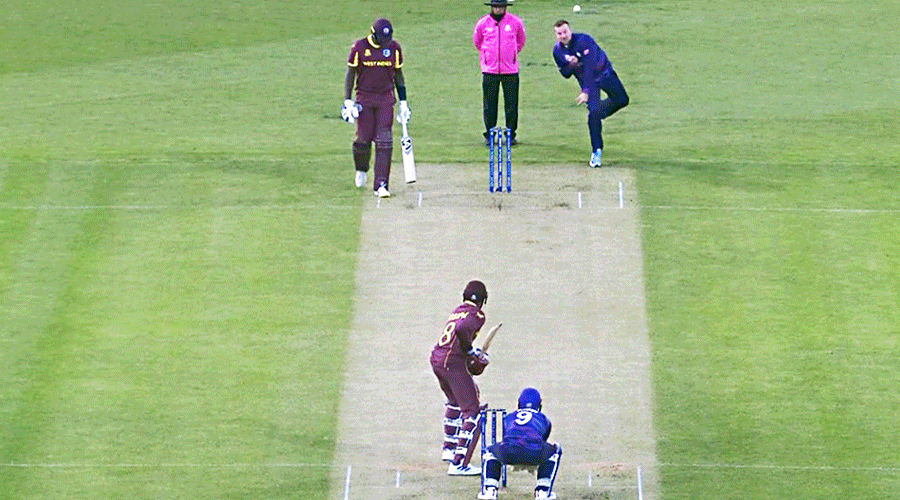Anything is possible in T20 cricket. And some of the Associate teams are out to prove that in this T20 World Cup.
The day after reigning Asia Cup champions Sri Lanka were stunned by Namibia, Scotland humbled the West Indies — the two-time T20 World Cup champions — by 42 runs in Hobart on Monday.
Put in to bat, the Scotsmen rode opener George Munsey’s unbeaten 66 to post a competitive 160 for 5. Thereafter, leftarm orthodox Mark Watt took 3 for 12 while off-spinner Michael Leask and pacer Brad Wheal took two scalps apiece to bowl the scratchy Windies out for 118 in 18.3 overs.
Like Namibia, Scotland too will now be fancying their chances of qualifying for the Super 12 stage of the competition. But the question Namibia and Scotland’s victories raises is if the gap between the traditional sides placed below the top six (India, Australia, England, New Zealand, Pakistan and South Africa) and the so-called “smaller” teams is gradually reducing.
“In T20s, there are no favourites. You can even win if any one of your batters or bowlers does something worthwhile. So yeah, a few years down the line, a couple of these smaller teams may well come up the ranks,” Lalchand Rajput, currently the technical director of Zimbabwe Cricket, said.
Former India opener Arun Lal echoed Rajput, adding: “These teams have to remain consistent, which is most important. But yes, they are certainly on their way to getting rid of the ‘minnows’ tag in T20s.”
South African Lance Klusener, one of the leading all-rounders of his time, came up with another view. “These smaller teams are lucky in the sense they can focus solely on whatever they are playing. Very few of their players play in (franchise) leagues, so they don’t have to worry about that.
“For those teams — the Windies and the likes — a lot of their players are not necessarily focused on the job at hand for their country. There are leagues they are focused on, while the teams are also dealing with injuries, people being rested and people focused on ODI and Test cricket.
“So the more cricket there is, the more distractions there are. That’s one of the reasons why the gap seems to have got a lot smaller with the others,” the former Afghanistan head coach and Zimbabwe batting coach argued.
Still tough scenario
Namibia assistant coach Albie Morkel, though, preferred to be pragmatic regarding this aspect. The former South Africa all-rounder believes the Associates need to have more game-time against stronger opponents in order to ensure they aren’t too far away from the top-tier sides.
“It’s very difficult to see if the Associate teams are narrowing the gap. If you look purely at the results of the last two days, you would think so. But if I talk about Namibia as a reference, we get to play against top teams only in T20 World Cups if we’re lucky to qualify. So people will say that we were lucky or it was just a one-off win,” Morkel told The Telegraph. “What I saw sitting next to the field is that we out-skilled Sri Lanka.
“I know we probably train harder than any other team, but it is difficult to gauge if you don’t play against better opposition more often.”
Brief scores: Scotland 160/5 in 20 overs (G. Munsey 66 n.o.; J. Holder 2/14). West Indies 118 in 18.3 overs (J. Holder 38; M. Watt 3/12). Scotland won by 42 runs.











